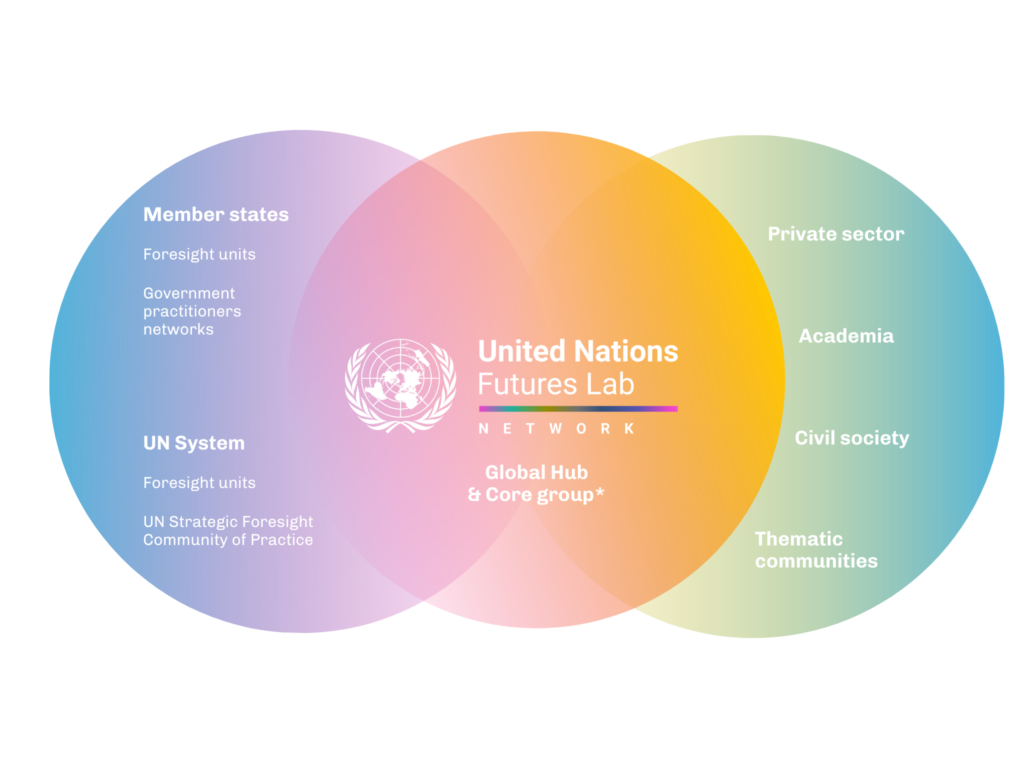Our Approach
Shaping the future with strategic foresight
One approach that we take in our work is to use strategic foresight. Foresight is our collective effort to answer a question: how do we create lasting and significant impact in a context of uncertainty? It is an approach and a set of tools for systematically thinking and acting in a long-term and anticipatory way under conditions of uncertainty.
Strategic foresight is just one of many ways to organize thoughts and ambitions about the future, helping us navigate uncertainty and create lasting impact. It is an approach that goes beyond traditional planning by considering long-term scenarios and emerging changes that may not be immediately visible in traditional data.
Whether reshaping healthcare or addressing social norms, foresight enables us to think systematically and prepare for multiple possible futures. As we implement programmes, the goal posts continue to move. We cannot transform the healthcare system of today; we need to transform the healthcare system we will have in five or six years down the road – and that system must stay relevant for the next 10 years.
By scanning for drivers of change, signals and trends, analyzing megatrends, and exploring multiple scenarios, foresight helps Governments and organizations better prepare for challenges, anticipate opportunities, and ensure policies are resilient in the face of change. We then use these insights to make better decisions – and act now.
Driving networked, inclusive, collaborative and muti-stakeholder foresight
The UN Futures Lab/Global Hub operates on a demand-driven approach, building on existing structures and initiatives through partnerships with UN entities and multistakeholder actors at global, regional, and national levels in support of Member States.
We champion futures thinking approaches that are participatory and inclusive by actively engaging diverse stakeholders from various sectors and geographies, including Governments, academia, civil society, the private sector, and philanthropic organizations.
*The Global Hub is led by the Executive Office of the Secretary-General (EOSG) and works in close collaboration with its core partners the United Nations Development Programme (UNDP), UN Development Coordination Office (DCO), UN Global Pulse, and the United Nations Educational, Scientific and Cultural Organization (UNESCO).

Our growing network


























































